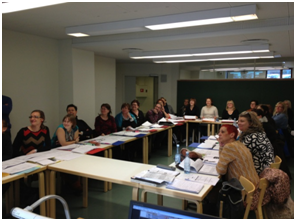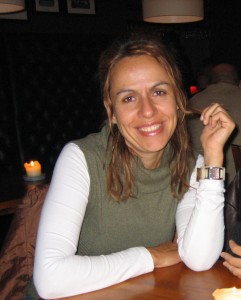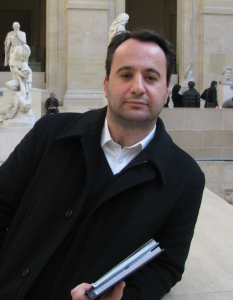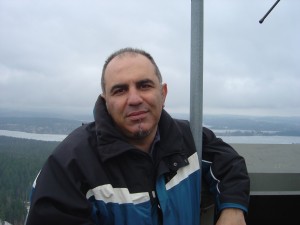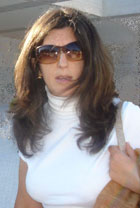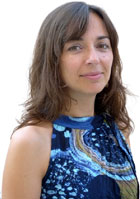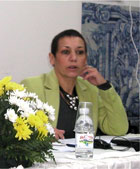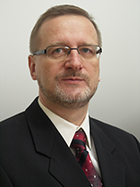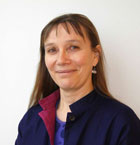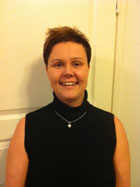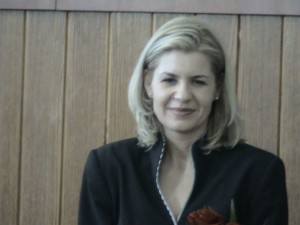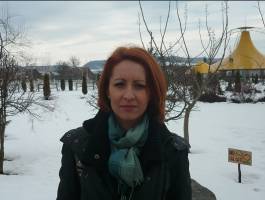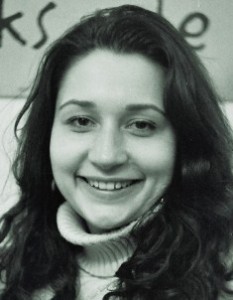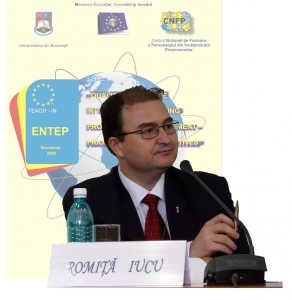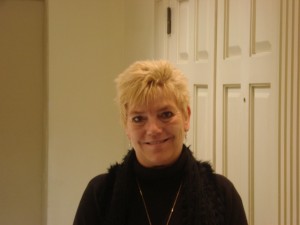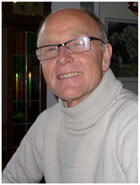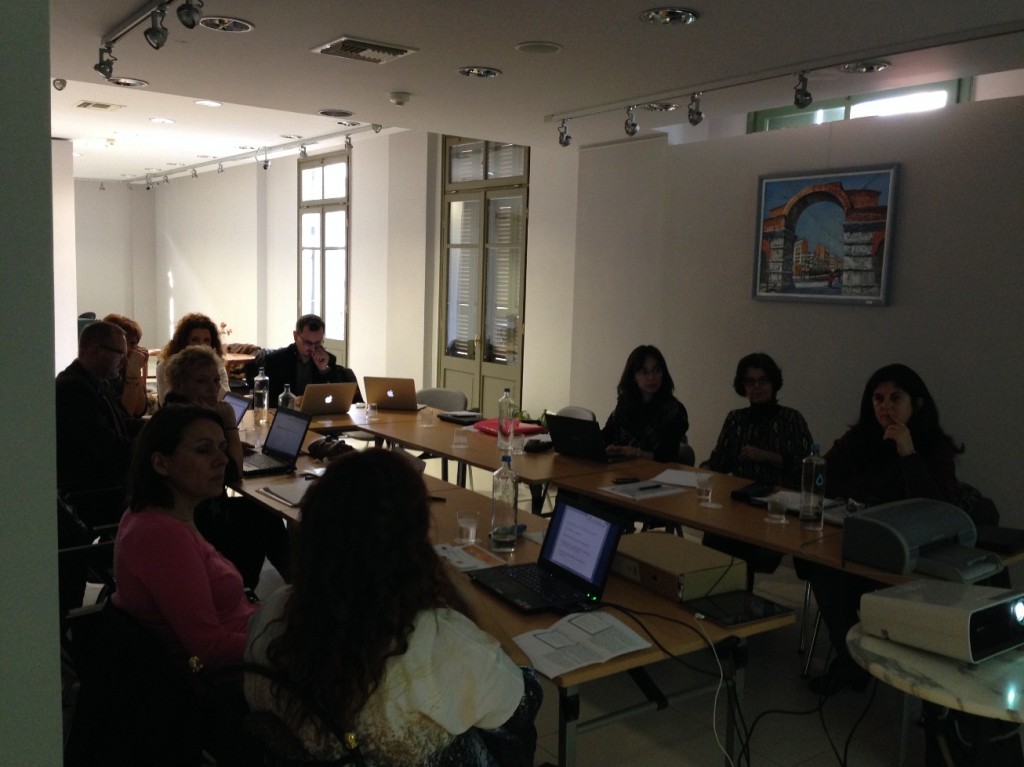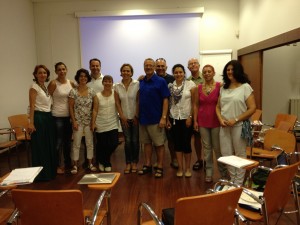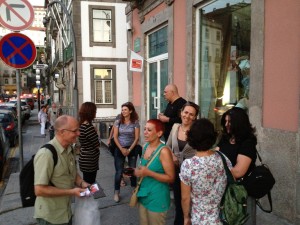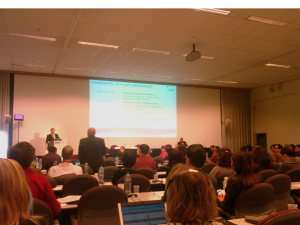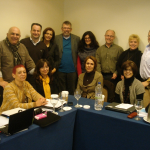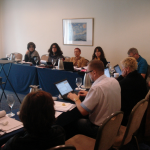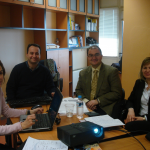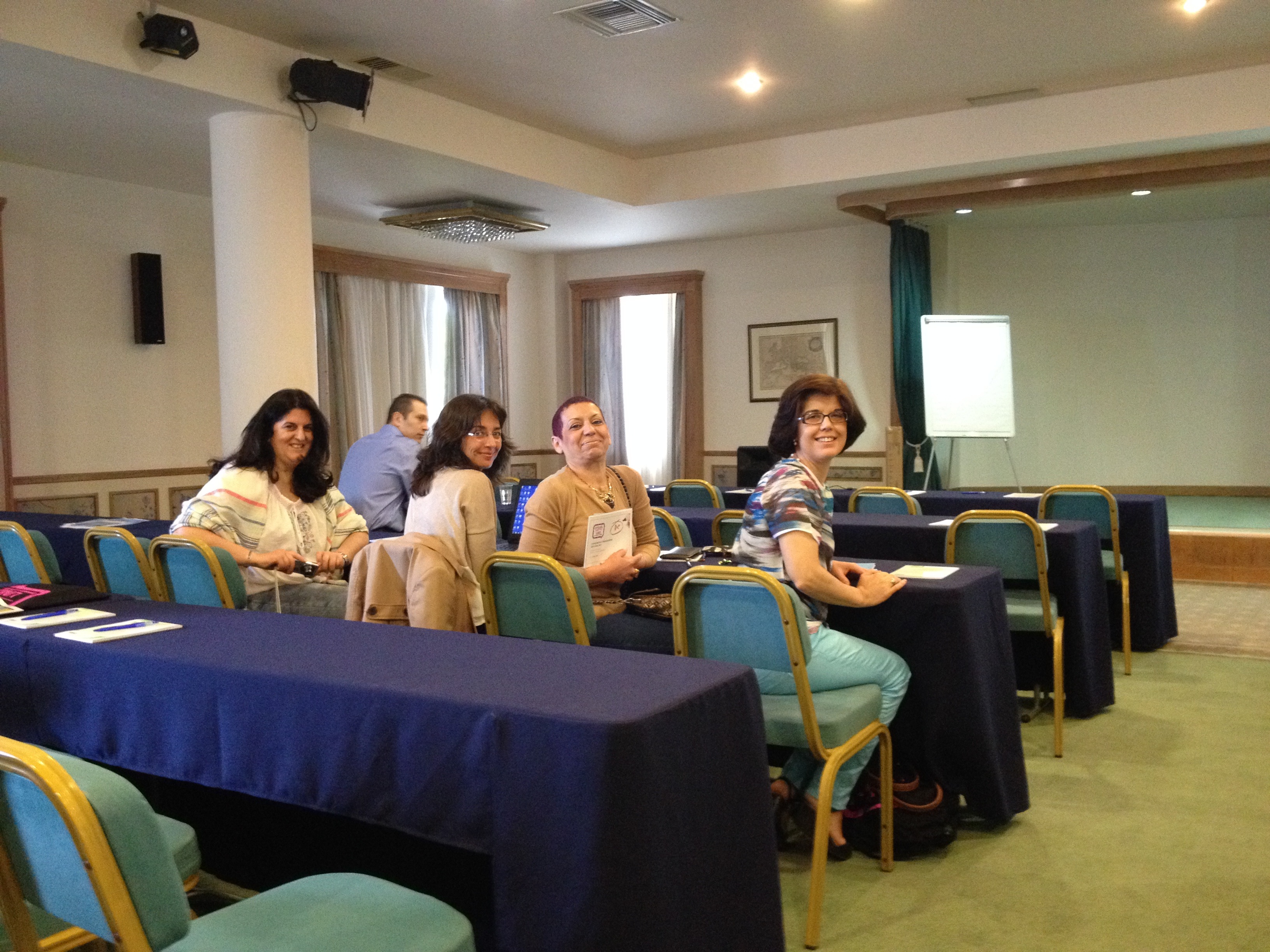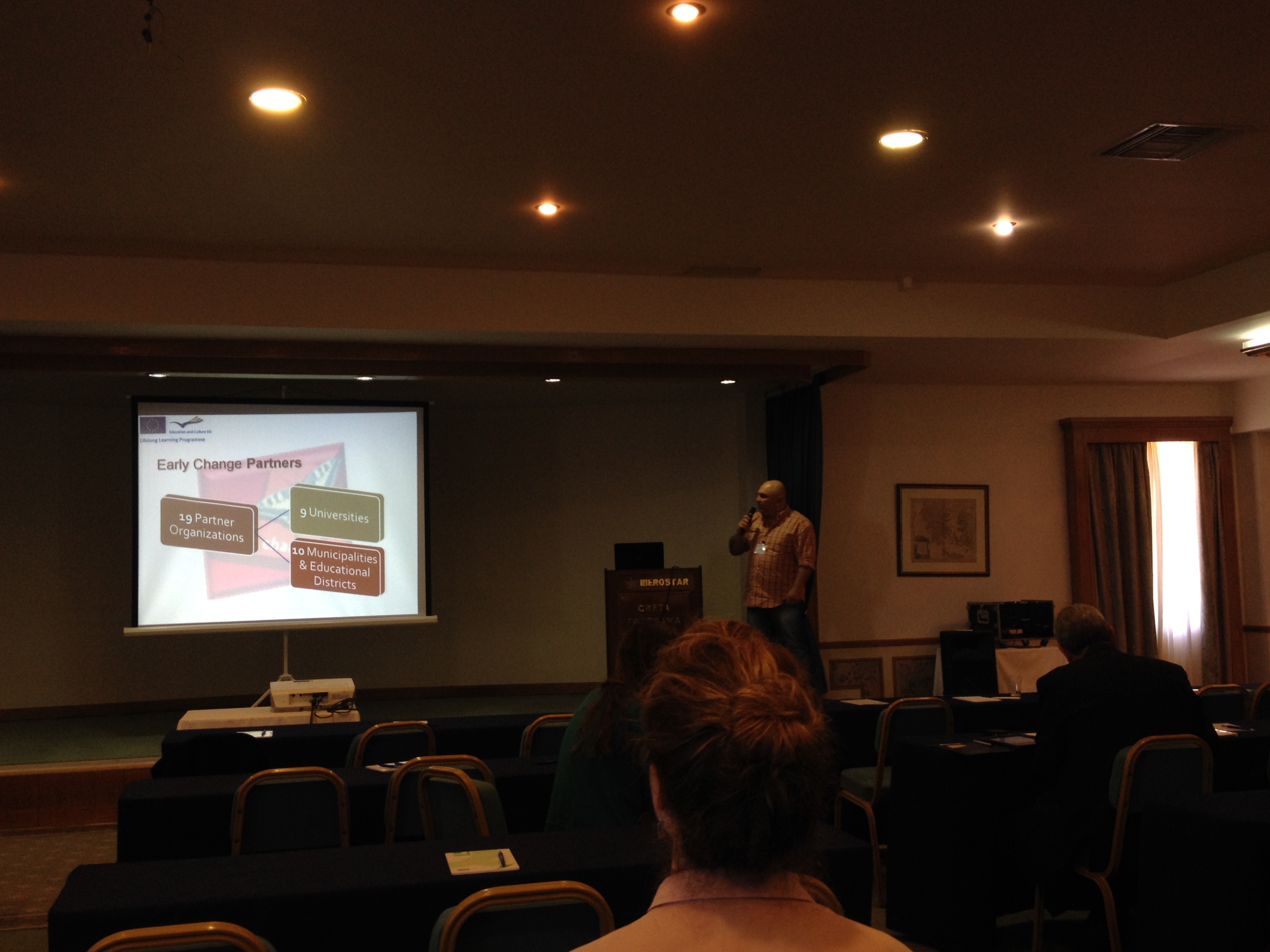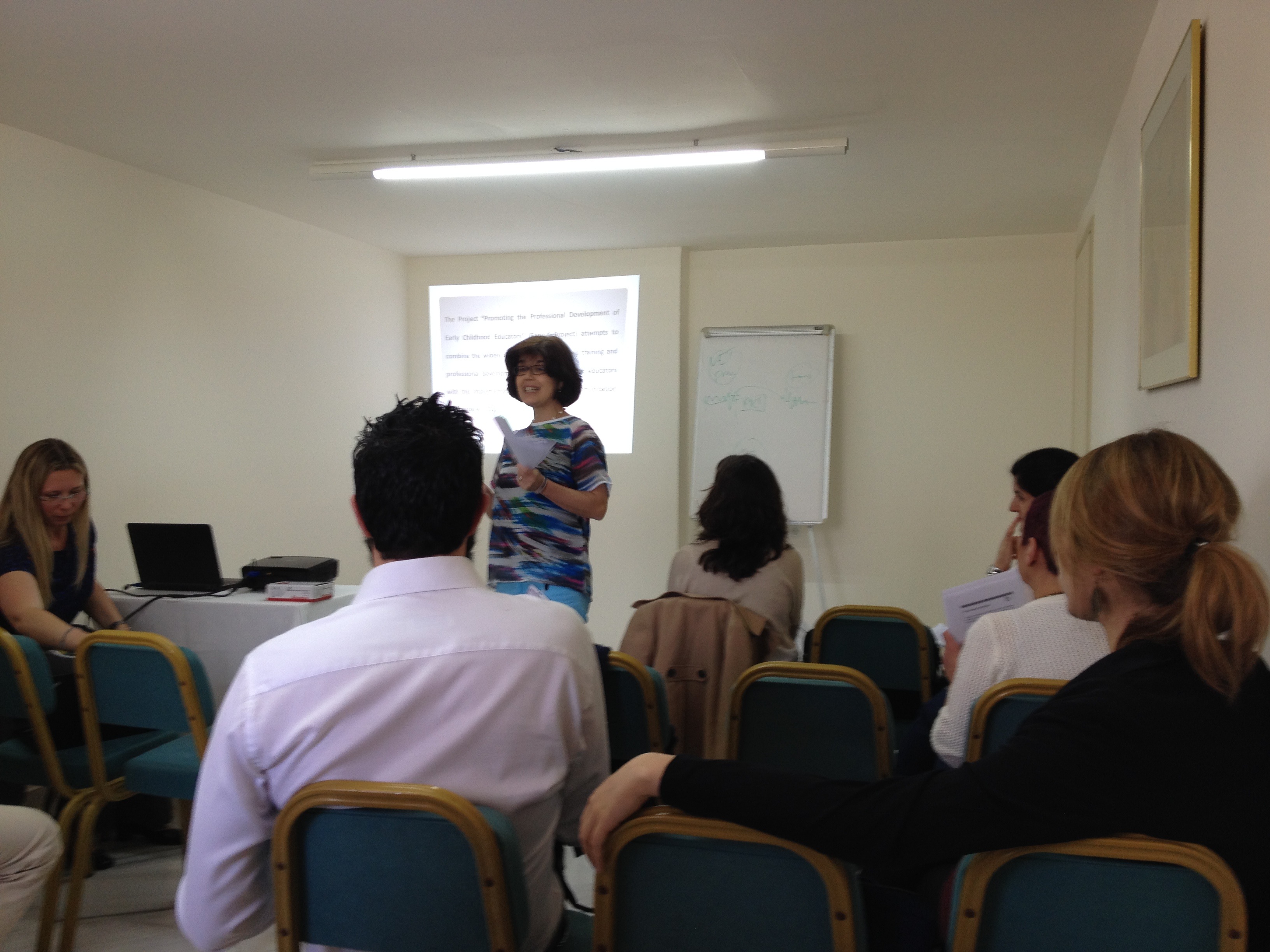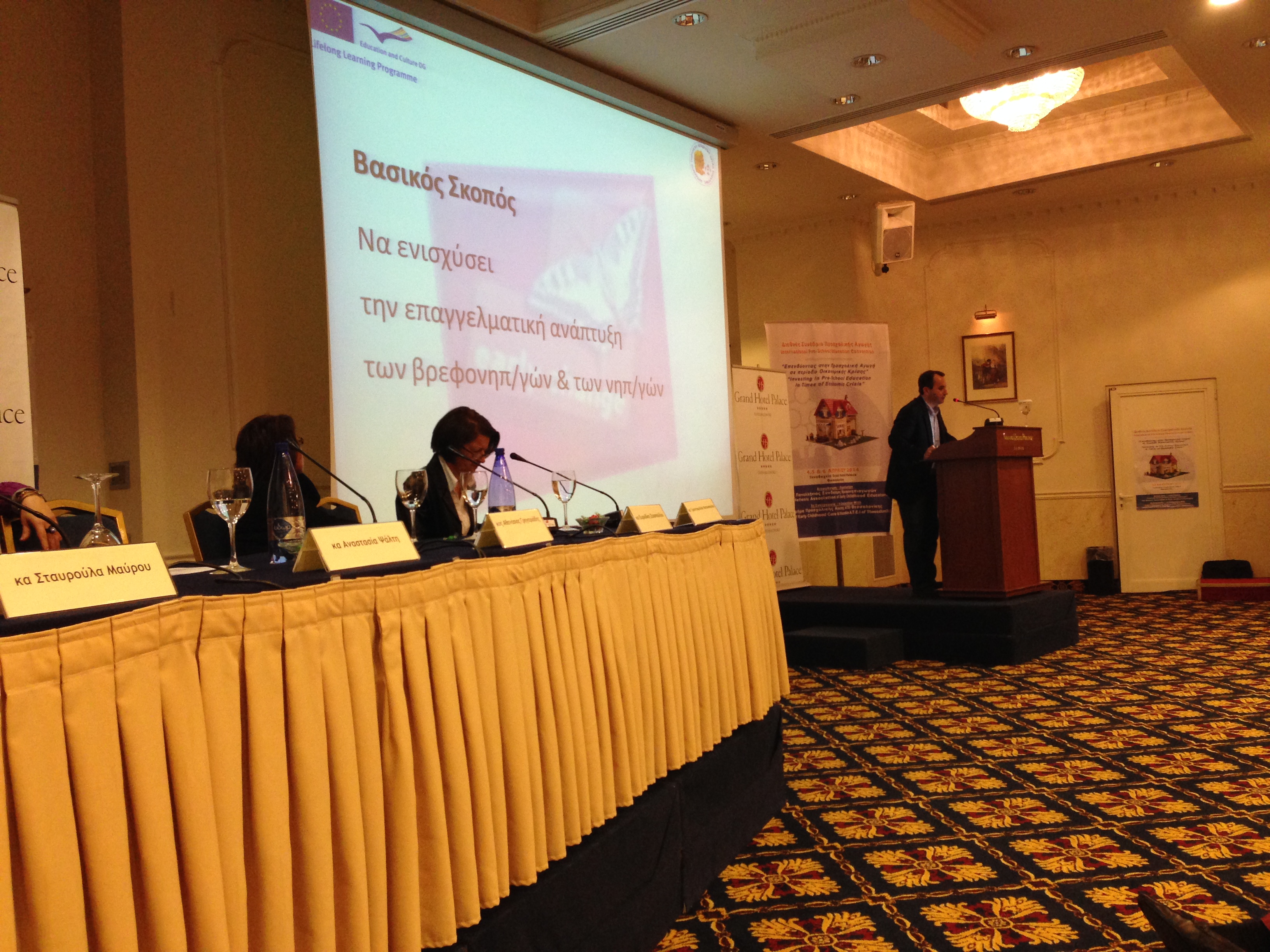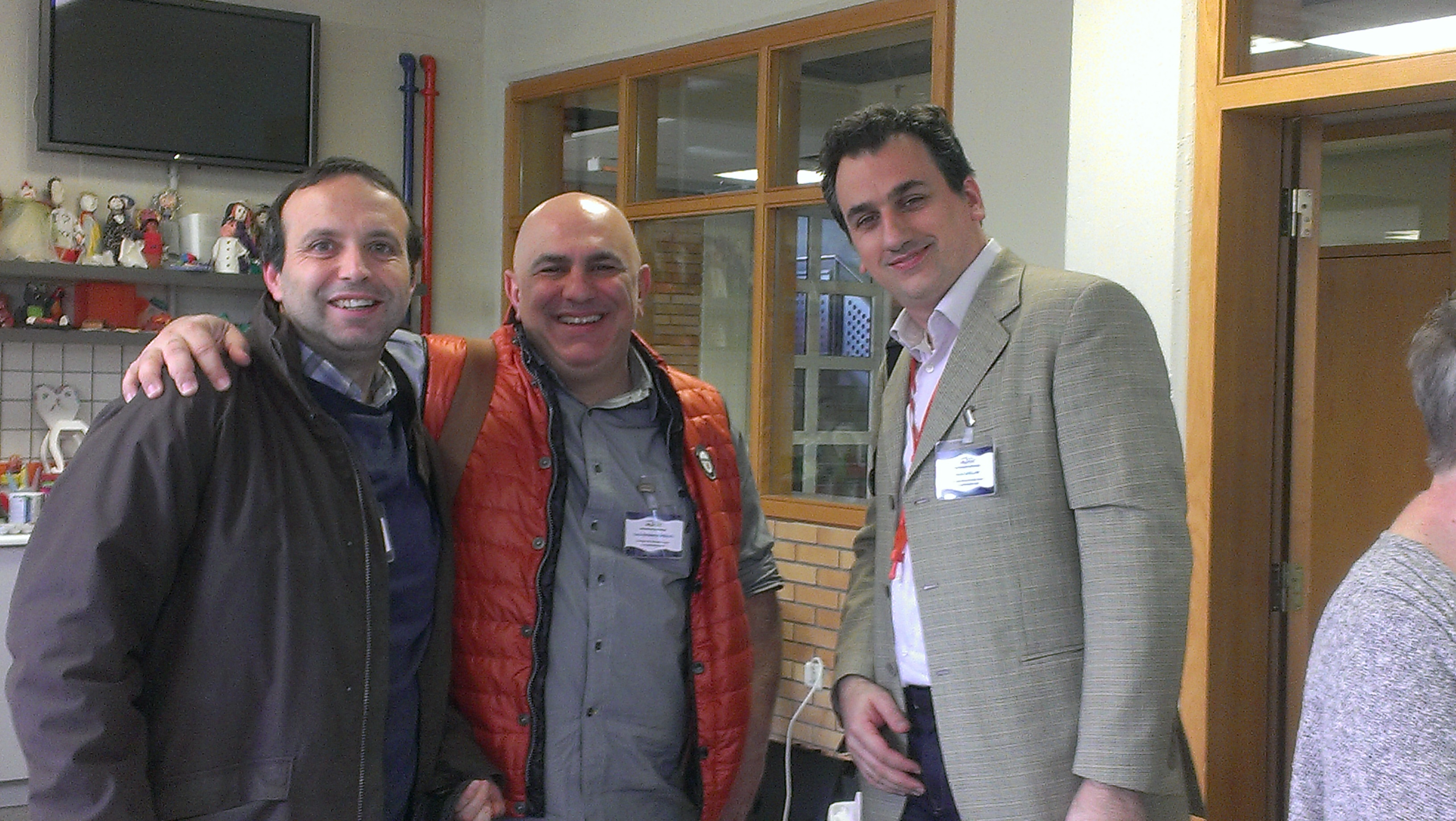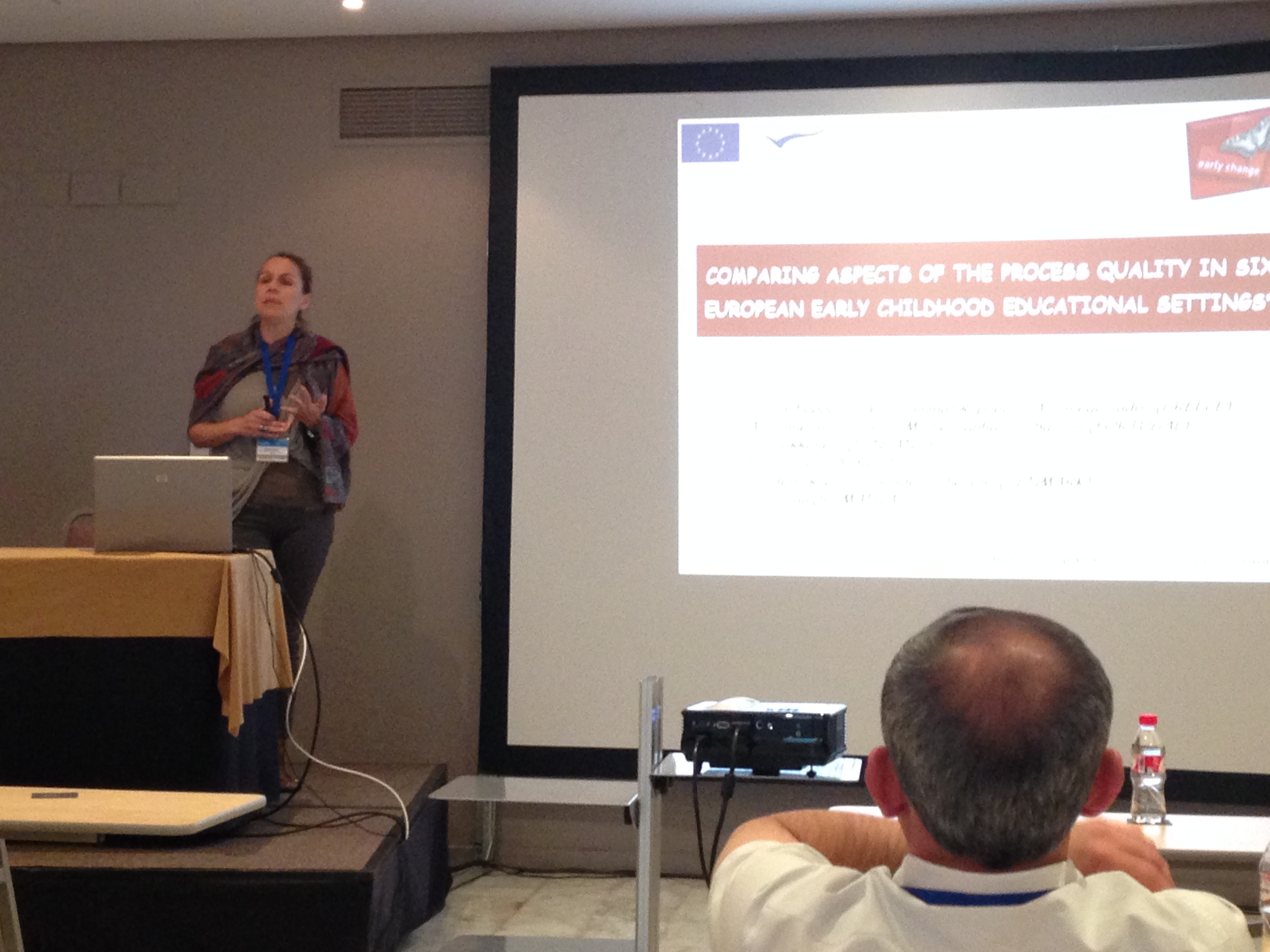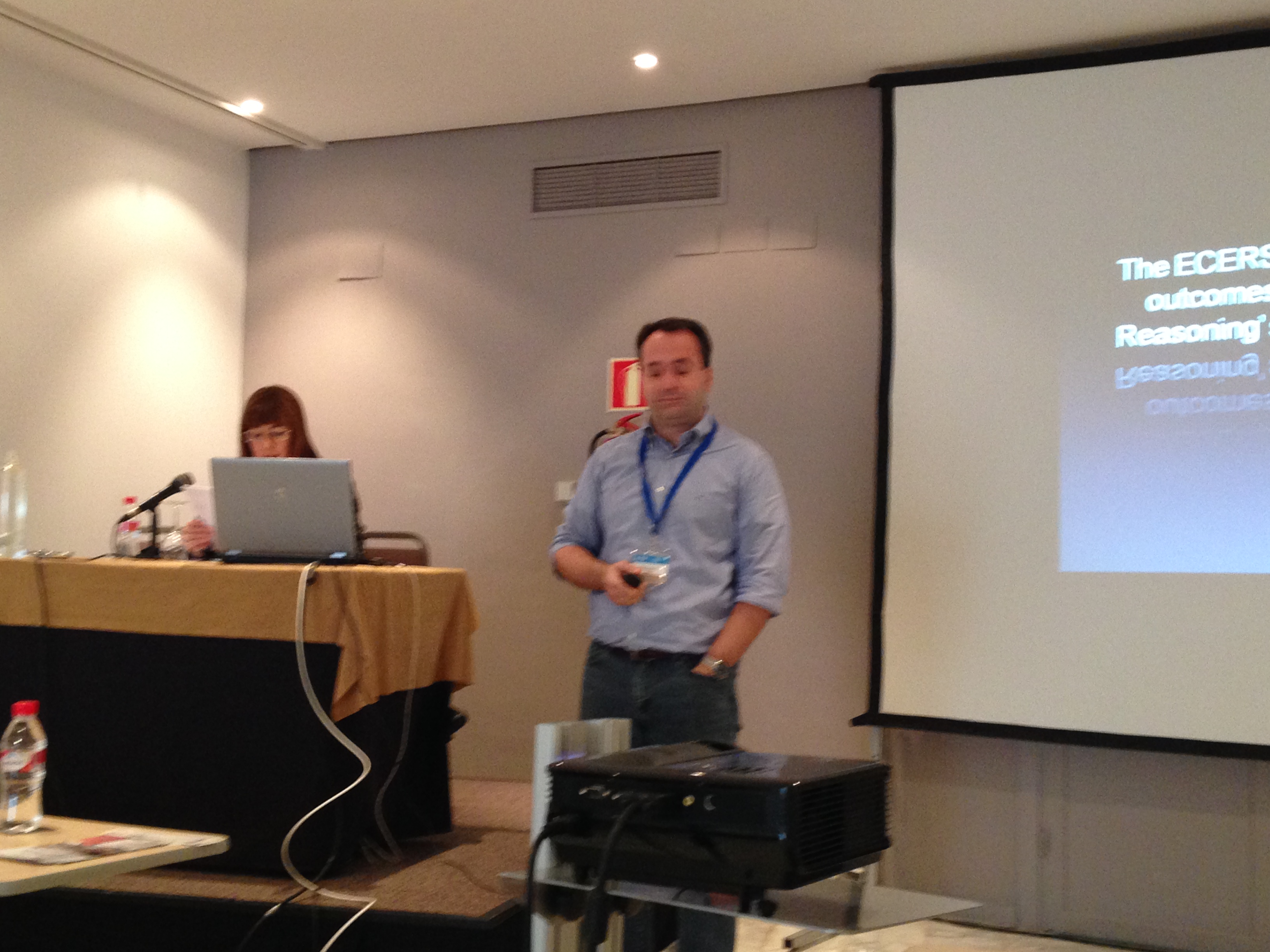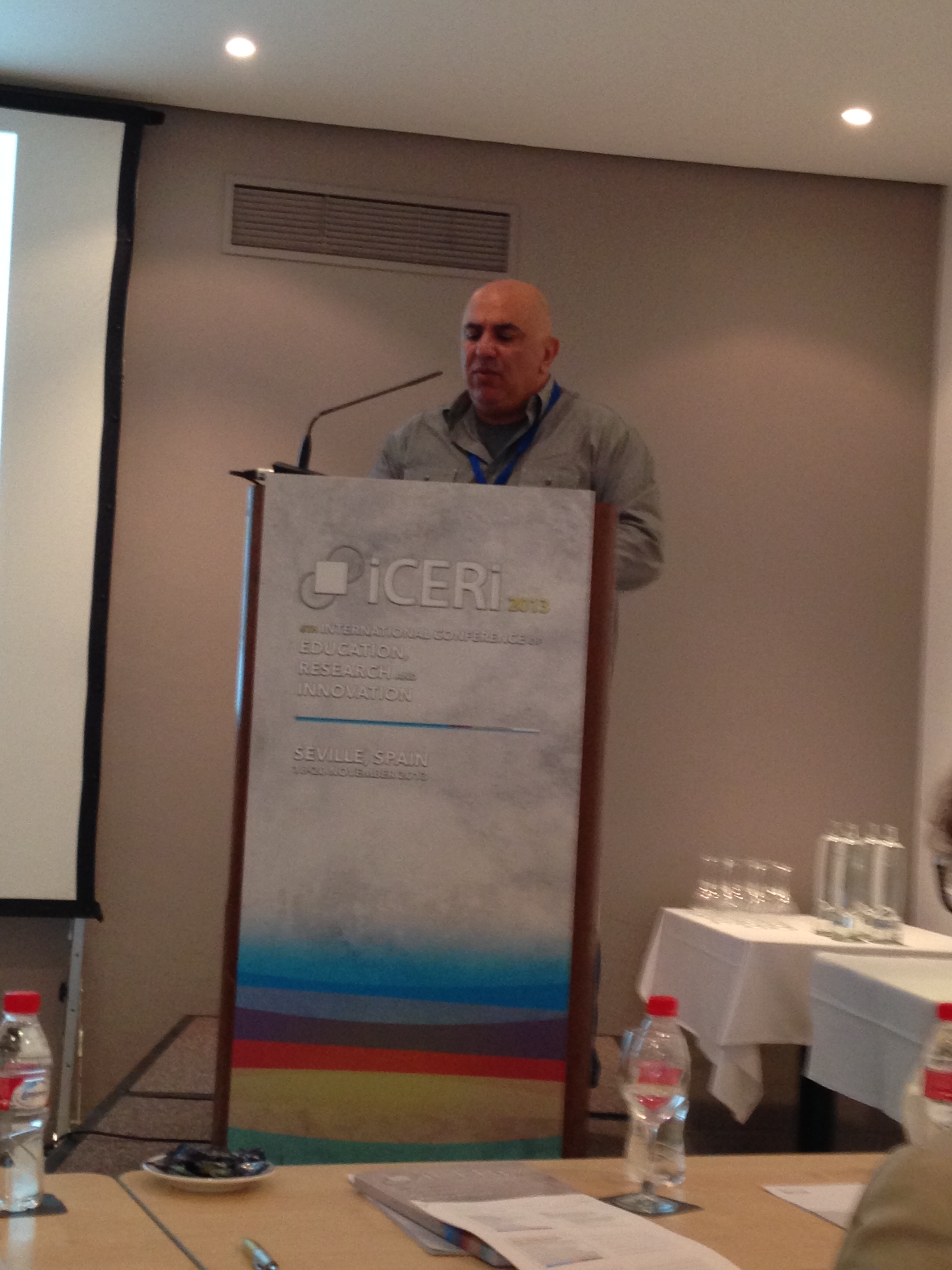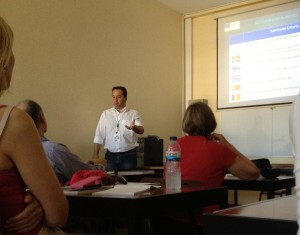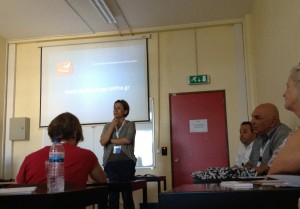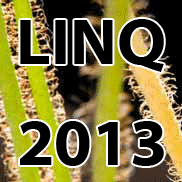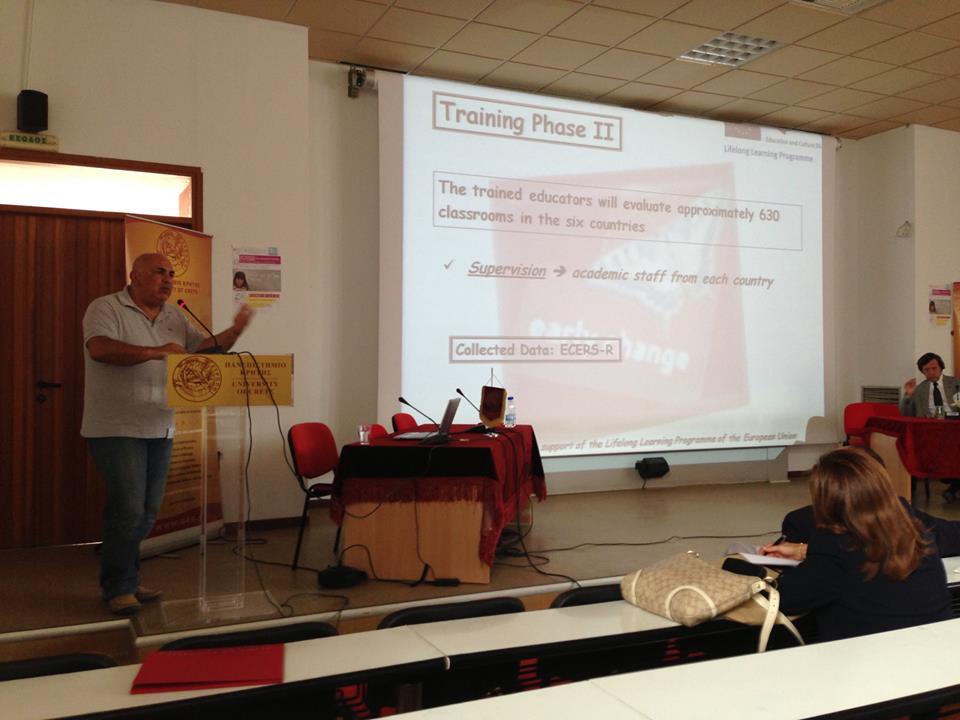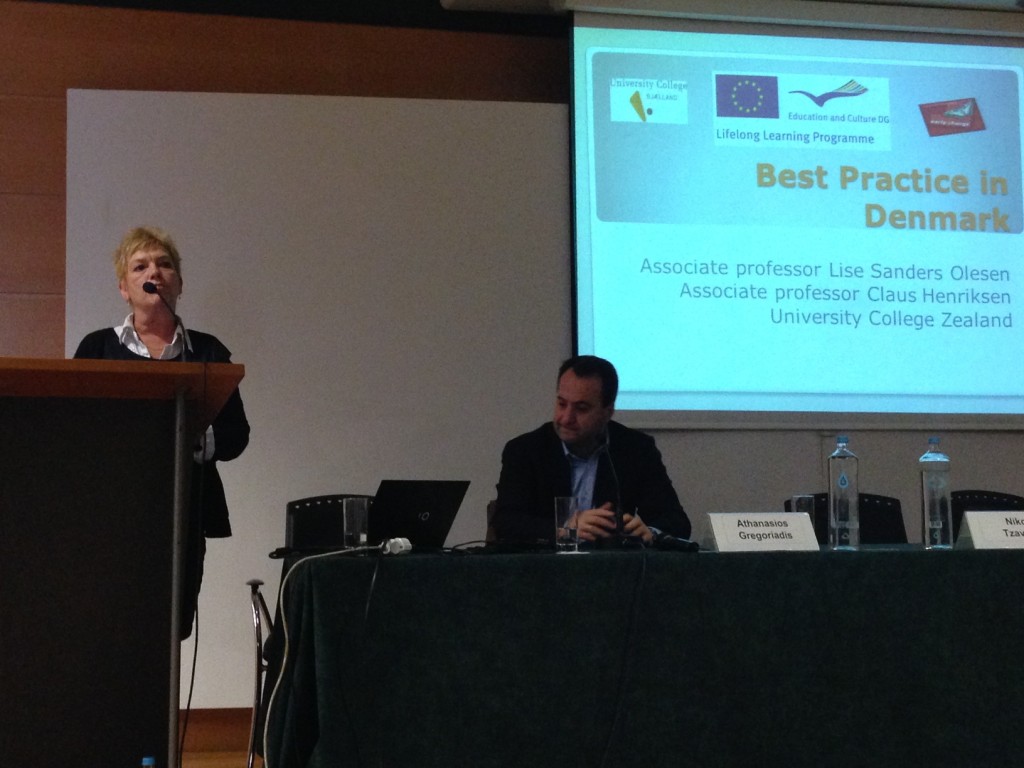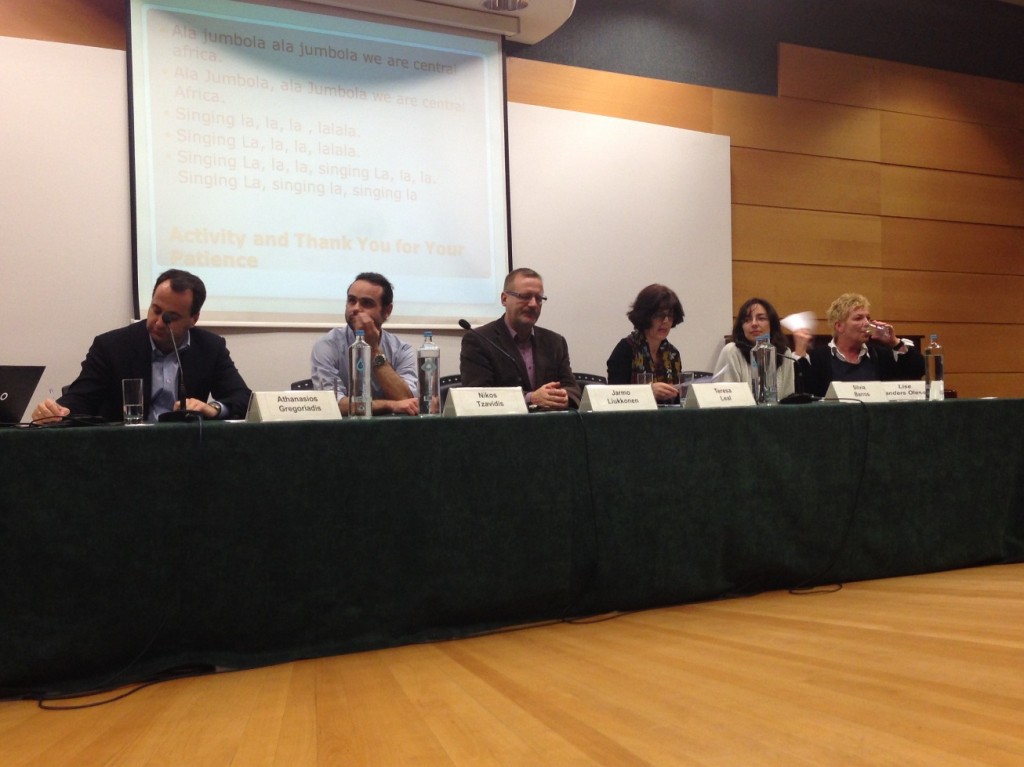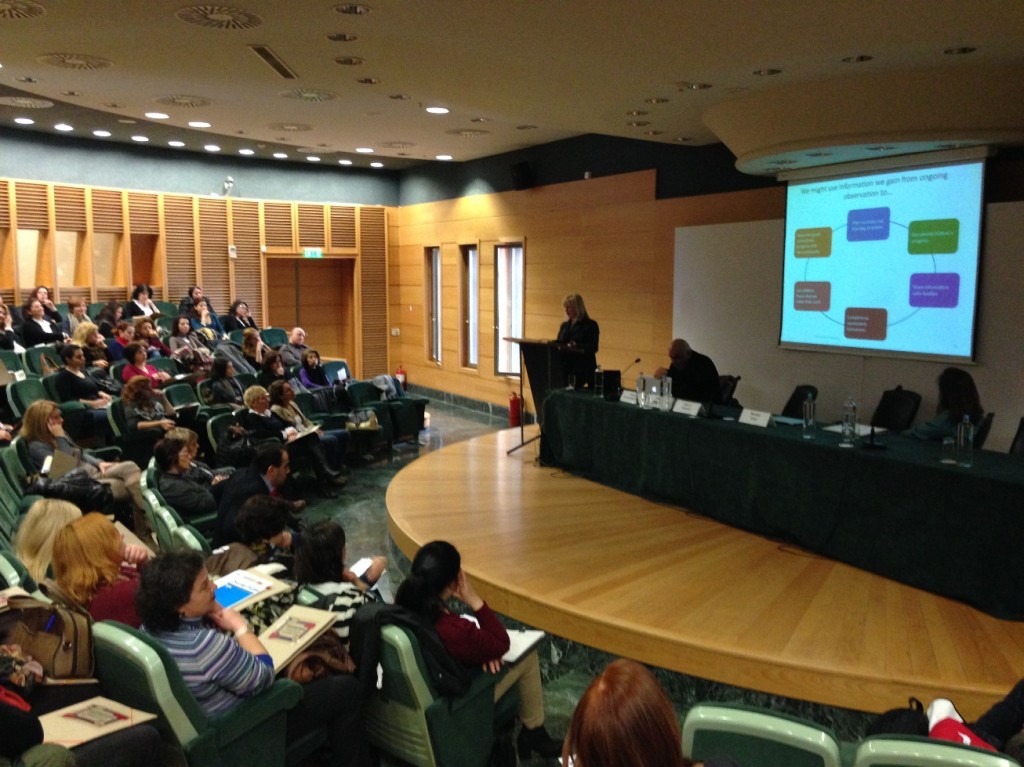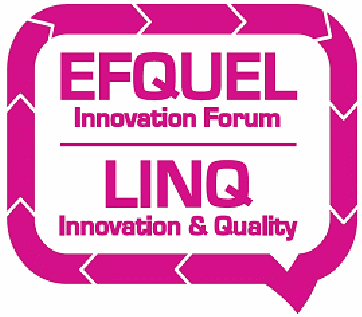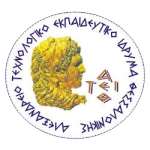Training Seminars
|
EARLY CHANGE Training in Portugal 10-12 November 2012 |
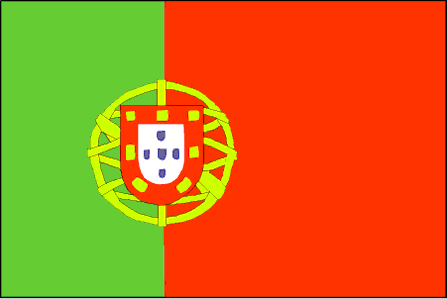 |
At the 10th, 11th, 12th of November 2012 the Early Change project visited the city of Porto in Portugal where the training seminar for the Training Phase I was conducted. The training was hosted by the University of Porto (Prof. Teresa Leal, Manuela Pessahna and Ana Gamelas).

University of Porto (one aspect)
The colleagues who organized and run the training were Dr. Leal, Dr. Gamelas and Dr. Pessahna from Portugal.
Training seminar

Early childhood educators from public preschool centers in Porto participated in the training that lasted three days.
The program of the seminar was the following:
|
1st Day |
|
|
TIME |
CONTENT |
| 09.00-10.00 | Good practices |
| Instrument presentation | |
| Guidelines & directions | |
| 10.00-11.00 | Theory presentation |
Theoretical issues concerning the philosophy of the instrument
|
|
Getting familiar with the items
|
|
Getting familiar with the scoring system
|
|
| 11.00-12.00 | Video observation & practical implementation (part I) |
Video part I
|
|
|
Lunch Break |
|
| 12.45-14.30 | Video observation & practical implementation (part I) |
Video part I
|
|
|
2nd DAY |
|
| 09.00-11.00 | Video observation, items rating & reliability procedures (Video II) |
Video part II
|
|
|
Lunch break |
|
| 12.00-14.00 | Video observation, items rating & reliability procedures (Video II) |
|
|
|
3rd DAY |
|
| 08.30-10.30 | Live observation |
| Small groups in kindergartens | |
|
Lunch break |
|
| 11.00-14.00 | Rating and reliability procedure |
| Items rating | |
| Checking reliability | |
|
EARLY CHANGE Training in Romania 6 – 7 December 2012 |
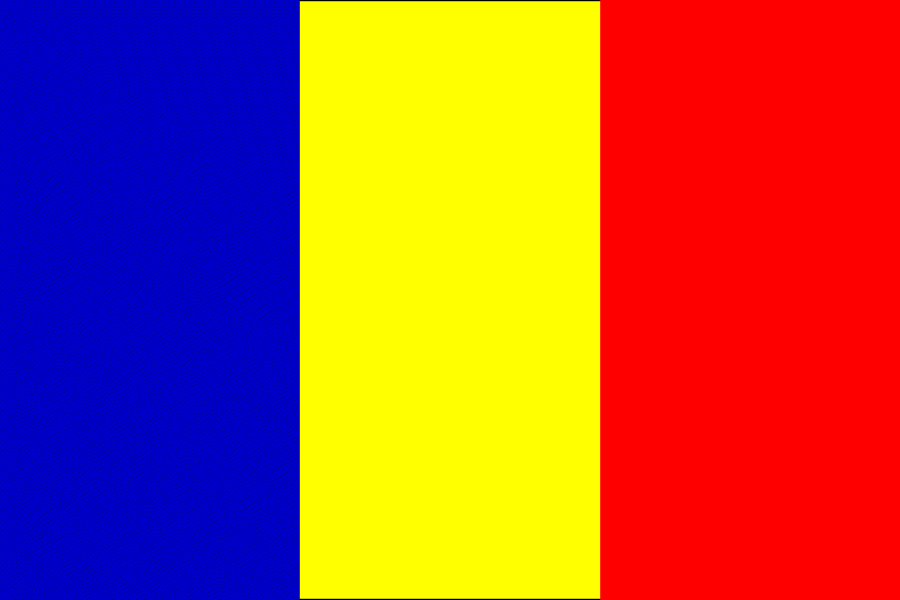 |
At the 6th and 7th of December 2012 the Early Change project visited the city of Bucharest in Romania where the training seminar for the Training Phase I was conducted. The training was hosted by the University of Bucharest (Prof. Romita Iucu and Laura Ciolan).

University of Bucharest (night photo)
The colleagues who organized and run the training were Dr. Grammatikopoulos and Dr. Gregoriadis from Greece and Dr. Leal and Dr. Gamelas from Portugal.
|
Training seminar
|
Training seminar
|
Early childhood educators from public preschool centers in Bucharest participated in the training that lasted two full days.

Early educators in the seminar
 |
 |
 |
Working hard with the scales |
The program of the seminar was the following:
|
1st Day |
|
|
TIME |
CONTENT |
| 08.00-09.00 | Good practices |
| Instrument presentation | |
| Guidelines & directions | |
| 09.00-11.00 | Theory presentation |
Theoretical issues concerning the philosophy of the instrument
|
|
Getting familiar with the items
|
|
Getting familiar with the scoring system
|
|
| 11.00-12.00 | Video observation & practical implementation (part I) |
Video part I
|
|
|
Lunch Break |
|
| 12.30-13.30 | Video observation & practical implementation (part I) |
Video part II
|
|
|
Coffee Break |
|
| 14.00-18.00 | Video observation& reliability procedures |
Video part III
|
|
Rating and reliability procedure
|
|
|
2nd DAY |
|
| 08.00-12.00 | Live observation |
| Small groups in kindergartens | |
|
Lunch break |
|
| 14.00-18.00 | Rating and reliability procedure |
| Items rating | |
| Checking reliability | |
Social activities of EARLY CHANGE in Bucharest: Romita, Laura, and the other colleagues who participated in the seminar were very warm and hospitable and created a great atmosphere throughout the training seminar, and our stay in Bucharest. They even organized a night visit at the opera of Bucharest for us. We thank them one more time for their hospitality and their friendship.
Early educators in the seminar
 |
The Opera Of Bucharest |
| The Opera Of Bucharest |  |
|
EARLY CHANGE Training in Cyprus 27 – 29 January 2013 |
 |
At the 27th 28th and 29th of January 2013 the Early Change project visited the city of Nikosia in Cyprus where the training seminar for the Training Phase I was conducted. The training was hosted by the University of Cyprus (Prof. Eleni Loizou).

University of Cyprus (one aspect)
The colleagues who organized and run the training were Dr. Grammatikopoulos and Dr. Gregoriadis from Greece.
|
Training seminar
|
Training seminar
|
Early childhood educators from public preschool centers in Nicosia participated in the training that lasted three days.

Early educators in the seminar
 |
 |
| Working hard with the scales |
The program of the seminar was the following:
|
1st Day – 27/01/2013 |
|
|
TIME |
CONTENT |
| 09.00-10.00 | Good practices |
| Instrument presentation | |
| Guidelines & directions | |
| 10.00-11.00 | Theory presentation |
Theoretical issues concerning the philosophy of the instrument
|
|
Getting familiar with the items
|
|
Getting familiar with the scoring system
|
|
| 11.00-12.00 | Video observation & practical implementation (part I) |
Video part I
|
|
|
Lunch Break |
|
| 12.45-14.30 | Video observation & practical implementation (part I) |
Video part I
|
|
|
2nd DAY – 28/01/2013 |
|
| 09.00-11.00 | Video observation,items rating & reliability procedures (Video II) |
Video part II
|
|
|
Lunch Break |
|
| 09.00-11.00 | Video observation,items rating & reliability procedures (Video II) |
|
|
|
3rd DAY – 29/01/2013 |
|
| 08.00-12.00 | Live observation |
| Small groups in kindergartens | |
|
Lunch break |
|
| 14.00-18.00 | Rating and reliability procedure |
| Items rating | |
| Checking reliability | |
Social activities of EARLY CHANGE in Nicosia: Eleni Loizou and the other colleagues who participated in the seminar were very warm and hospitable and created a great atmosphere throughout the training seminar, and our stay in Nicosia. We thank them one more time for their hospitality and their friendship.
 |
At the end of the training, tired but happy |
|
EARLY CHANGE Training in Greece 1-3 December 2012 |
 |
At the 1st, 2nd and 3rd of December 2012 the Early Change project returned “home” at the city of Thessaloniki in Greece where the training seminar for the Training Phase I was conducted. The training was hosted by the Alexander Technological Educational Institute of Thessaloniki, Aristotle University of Thessaloniki and University of Crete (Prof. Evridiki Zachopoulou, Athanasios Gregoriadis and Vasilis Grammatikopoulos).

Alexander Technological Educational Institute of Thessaloniki (one aspect)
The colleagues who organized and run the training were Dr. Zachopoulou, Dr. Gregoriadis and Dr. Grammatikopoulos from Greece.
|
Training seminar
|
Training seminar
|
Early childhood educators from public preschool centers in Thessaloniki and Kalamaria participated in the training that lasted three days.
The program of the seminar was the following:
|
1st Day |
|
|
TIME |
CONTENT |
| 09.00-10.00 | Good practices |
| Instrument presentation | |
| Guidelines & directions | |
| 10.00-11.00 | Theory presentation |
Theoretical issues concerning the philosophy of the instrument
|
|
Getting familiar with the items
|
|
Getting familiar with the scoring system
|
|
| 11.00-12.00 | Video observation & practical implementation (part I) |
Video part I
|
|
|
Lunch Break |
|
| 12.45-14.30 | Video observation & practical implementation (part I) |
Video part I
|
|
|
2nd DAY |
|
| 09.00-11.00 | Video observation,items rating & reliability procedures (Video II) |
Video part II
|
|
|
Lunch Break |
|
| 09.00-11.00 | Video observation,items rating & reliability procedures (Video II) |
|
|
|
3rd DAY |
|
| 08.00-12.00 | Live observation |
| Small groups in kindergartens | |
|
Lunch break |
|
| 14.00-18.00 | Rating and reliability procedure |
| Items rating | |
| Checking reliability | |
|
EARLY CHANGE Training in Denmark 8 – 9 October 2012 |
 |
At the 8th and 9th of October 2012 the Early Change project visited Nykobing-Falster in Denmark where the training seminar for the Training Phase I was conducted. The training was hosted by University College Sealand (Andreas Claus Henriksen & Lise Sanders Olesen) with the kind support of Guldborgsund Municipality (Bill Lehmann).
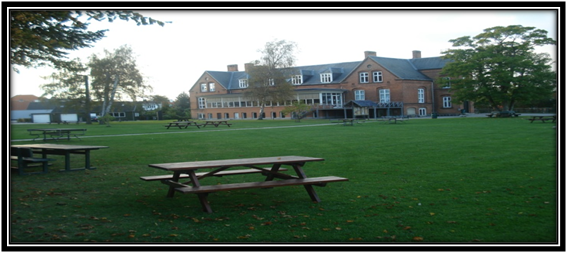
The academic staff that organized and conducted the training were the coordinator of the project Prof. Evridiki Zachopoulou together with Dr. Grammatikopoulos and Dr. Gregoriadis from Greece and Dr. Leal and Dr. Gamelas from Portugal.
|
Training Team 1
|
Training Team 2
|
Early childhood educators from public preschool centers in Nykobing, Falster participated in the training that lasted two full days.

Early educators in the seminar
 |
 |
 |
(a) Visiting the preschool centers and impementing the scales (b) Working in groups |
The program of the seminar was the following:
|
1st Day |
|
|
TIME |
CONTENT |
| 08.00-09.00 | Good practices |
| Instrument presentation | |
| Guidelines & directions | |
| 09.00-11.00 | Theory presentation |
Theoretical issues concerning the philosophy of the instrument
|
|
Getting familiar with the items
|
|
Getting familiar with the scoring system
|
|
|
Coffee break |
|
| 11.30-13.30 | Video observation & practical implementation |
Video part I
|
|
Video part II
|
|
|
Lunch break |
|
| 14.30-18.30 | Video observation, items rating & reliability procedures |
Video part III
|
|
Rating and reliability procedure
|
|
|
2nd DAY |
|
| 08.00-12.00 | Live observation |
| Small groups in kindergartens | |
|
Lunch break |
|
| 14.00-18.00 | Rating and reliability procedure |
| Items rating & reliability checking | |
| Debriefing & meeting closing | |
Social activities of EARLY CHANGE in Nykobing: Claus, Bill and all the colleagues who participated in the seminar were very warm and hospitable and created a great atmosphere throughout the training seminar and our stay in Nykobing. We thank them once more for their hospitality and their friendship.
 |
Taking a walk in Nykobing |
| Teresa, Vasilis, Ana, Evridiki, Claus |  |
The members of the Early Change had the opportunity to present the project to the local press and contribute to the dissemination process in the local community.

|
EARLY CHANGE Training in Finland 29 – 30 October 2012 |
 |
At the 29th and 30th of October 2012 the Early Change project visited the city of Jyvaskyla in Finland where the training seminar for the Training Phase I was conducted. The training was hosted by the University of Jyvaskyla (Prof. Jarmo Liukkonen, Raija Raittila, Leena Turja, and Katri Takala).

University of Jyvaskyla (one aspect)
The colleagues who organized and run the training were Dr. Grammatikopoulos and Dr. Gregoriadis from Greece and Dr. Pessanha and Dr. Gamelas from Portugal.
|
Training Team 1
|
Training Team 2
|
Early childhood educators from public preschool centers in Jyvaskyla and Kajani participated in the training that lasted two full days.
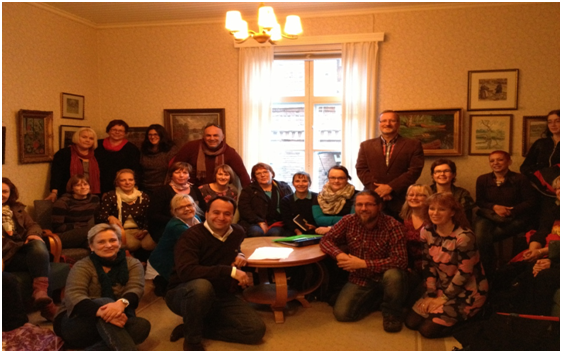
Early educators in the seminar
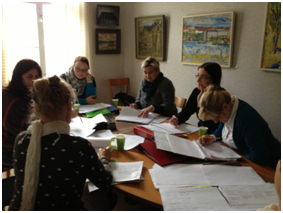 |
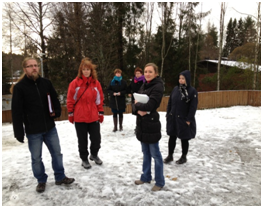 |
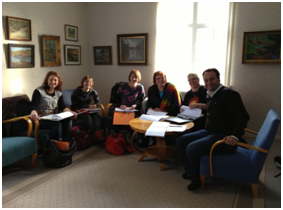 |
(a) Visiting the preschool centers and impementing the scales (b) Working in groups |
The program of the seminar was the following:
|
1st Day |
|
|
TIME |
CONTENT |
| 08.00-09.00 | Good practices |
| Instrument presentation | |
| Guidelines & directions | |
| 09.00-11.00 | Theory presentation |
Theoretical issues concerning the philosophy of the instrument
|
|
Getting familiar with the items
|
|
Getting familiar with the scoring system
|
|
| 11.00-12.00 | Video observation & practical implementation (part 1) |
Video part I
|
|
|
Lunch break |
|
| 12.30-13.30 | Video observation & practical implementation (part 2) |
Video part II
|
|
|
Coffee break |
|
| 14.00-18.00 | Video observation, items rating & reliability procedures |
Video part III
|
|
Rating and reliability procedure
|
|
|
2nd DAY |
|
| 08.00-12.00 | Live observation |
| Small groups in kindergartens | |
|
Lunch break |
|
| 14.00-18.00 | Rating and reliability procedure |
| Items rating & reliability checking | |
| Debriefing & meeting closing | |
Social activities of EARLY CHANGE in Jyvaskyla: Jarmo and the other colleagues who participated in the seminar were very warm and hospitable and created a great atmosphere throughout the training seminar, and our stay in Jyvaskyla. We thank them one more time for their hospitality and their friendship.
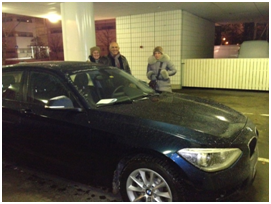 |
Taking a walk in Jyvaskyla |
| Dinner with Jarmo and Tuula | 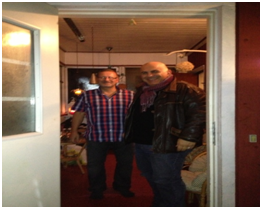 |










